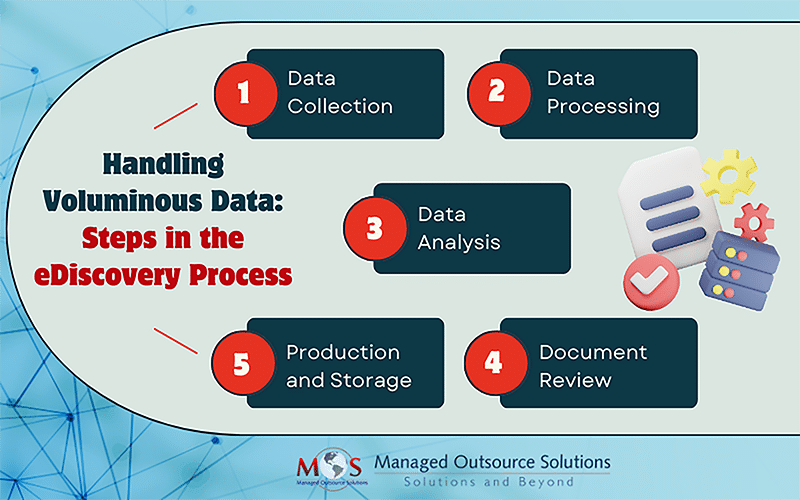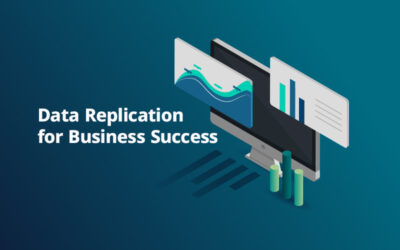The investigation portion of lawsuits involves both parties asking each other for information. Electronic discovery or eDiscovery is the process of electronically identifying, collecting, preserving, reviewing, and producing electronically stored information (ESI) for legal proceedings or investigations. This discovery process is part of all civil cases and aims to find admissible evidence in a civil suit. The explosion of digital evidence in litigation is driving the demand for e-discovery services. It is a crucial component of modern litigation and is commonly used by lawyers, particularly in cases involving large volumes of electronic data. Professional support for Ediscovery eases the complex process of collecting information pertaining to a case from mountains of data.
Challenges of Handling Digital Evidence
Electronic discovery evidence may comprise information sourced from email accounts, instant messaging platforms, social media profiles, online documents, databases, internal applications, digital images, website content, and any other electronic data pertinent to civil and criminal litigation proceedings.
Digital evidence is pivotal in court, offering electronic documents, emails, and contracts for support or challenge. Communication records, including emails and social media content, establish intentions and involvement. However, legal professionals face some unique challenges when it comes to collecting and handling digital evidence:
- Dealing with a large amount of digital data in a case can be challenging. The data comes in different forms and can be hard to access and understand.
- Electronic data is vulnerable to changes, deletions, and encryption. It can also be spread across various devices and platforms, making it harder to gather.
- Digital data can span different locations and legal jurisdictions, which means there are various laws and regulations to follow when it comes to accessing, sharing, and transferring the data.
Such complexities require significant time and resources to process and analyze as well as advanced skills and knowledge to recover and reconstruct.
Electronic discovery services are a valuable tool that eases these challenges by identifying and collecting information relevant to litigation from large volumes of electronically stored information. For example, consider a situation where a large corporation is accused of antitrust violations. Electronic discovery solutions streamline litigation data management by leveraging technology and workflows to sift through vast electronic document collections, such as emails, memos, and contracts, for the antitrust case. The service provider collects, processes, and loads data into specialized software. Using the technology’s advanced search capabilities, experts filter and identify relevant documents for manual review by attorneys, who assess their significance and redact any privileged information.
Let’s explore how this works in greater detail.
How E-discovery Services Handle Voluminous Digital Data
Electronic discovery services utilize various strategies and technologies to effectively handle large volumes of electronic data in litigation cases. Their dedicated teams integrate cutting-edge analytics into every step of the process.
Here’s how they manage such data:
Data Collection
E-discovery service providers use state-of-the-art tools and processes to collect electronic data from diverse sources such as email servers, document repositories, cloud storage, desktops, laptops and mobile devices. These tools can efficiently gather data in bulk while ensuring its integrity and maintaining a chain of custody.
Data Processing
After collecting electronic data, it is processed to facilitate smoother review and analysis. This involves organizing and indexing the data while filtering out irrelevant information. Advanced software tools are utilized to handle tasks like data deduplication, file indexing, text extraction, and metadata preservation.
Data Analysis
Advanced technology is utilized to analyze the date and identify patterns, trends, and relevant information within the large dataset. This may include using special techniques to understand the context and significance of the data.
Document Review
Electronic discovery services conduct document review to determine the relevance of the collected materials. Trained reviewers assess documents for relevance, privilege, and confidentiality, helping to identify key evidence for the case.
Production and Storage
The final step in the process is converting the electronically stored information (ESI) into the required formats, such as PDF, TIFF, etc. Electronic discovery services utilize secure data storage systems and databases to manage the large volumes of electronic data efficiently. They ensure compliance with data retention policies and legal requirements for data security and confidentiality.
In recent years, artificial intelligence (AI) is being leveraged for harnessing vast volumes of both structured and unstructured data. It has significantly enhanced the speed, efficiency, and accuracy of digital document discovery, resulting in time and cost savings while minimizing the potential for human mistakes.
Benefits of Partnering with an Expert
eDiscovery gives legal professionals the tools they need to analyze cases and discover the truth. With it, they can retrieve information from a wide range of sources and use it as evidence in a court of law.
Leading business process outsourcing companies that provide eDiscovery support also have scalable infrastructure to handle fluctuations in data volume during litigation. They can quickly scale up resources such as storage capacity and processing power as needed to accommodate large datasets and tight deadlines. With expert eDiscovery services, lawyers can handle large volumes of electronic data efficiently, save costs and time, and focus on their core litigation tasks.
Take control of your data with our reliable eDiscovery services!





